If you’re like many savvy individuals, you’re always searching for reliable books on investing. You might want to begin with a book that provides an overview of the entire investment landscape, covering everything from stocks and bonds to real estate, fine art, and cryptocurrencies. Or perhaps you want to focus on a specific area of investing or understand the mindset behind how experts approach investments and money.
Below, we’ve highlighted key areas, starting with our top recommendation: The Bond King by NPR “Planet Money” podcaster and journalist Mary Childs. It’s a compelling biography of Bill Gross, formerly of PIMCO, who revolutionized the bond market, achieving immense wealth and a polarizing reputation. For value investing, we recommend Benjamin Graham’s The Intelligent Investor, a classic favorite of many successful investors. And for a comprehensive investing guide, we suggest The Only Investment Guide You’ll Ever Need by Andrew Tobias.
Best Overall: "The Bond King"
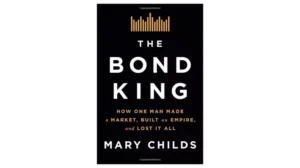 This year seems to be a standout for books about Bill Gross. Alongside The Bond King by Mary Childs, which we rank as the best overall investing book, Gross himself has released a self-published autobiography titled I’m Still Standing: Bond King Bill Gross and the PIMCO Express.
This year seems to be a standout for books about Bill Gross. Alongside The Bond King by Mary Childs, which we rank as the best overall investing book, Gross himself has released a self-published autobiography titled I’m Still Standing: Bond King Bill Gross and the PIMCO Express.
Childs’ insightful and engaging book about Gross, the pioneering bond trader from PIMCO, portrays him as both brilliant and visionary. He revolutionized bond trading by creating a new market for it, but the book also shows his darker side—an egotistical and volatile leader known for being verbally abusive to staff. His abrasive management style led to key employees leaving, including PIMCO’s former co-CEO and co-CIO, Mohamed El-Erian. This eventually forced Gross to resign from the very company he helped build.
Childs, an NPR “Planet Money” podcast co-host and seasoned financial journalist, takes readers through key events like the subprime mortgage crisis. Gross was closely connected with top federal and banking officials during that time, who often sought his insights.
Gross first honed his strategic thinking as a blackjack player in Las Vegas, successfully counting cards. He brought this high-risk mentality to bond trading, earning the title “Bond King” from Fortune in 2002. At his peak, Gross was a media darling, frequently appearing on magazine covers and business channels.
After his exit from PIMCO, Gross joined Janus Capital Group but failed to replicate his previous success. In 2019, he disclosed that he had been diagnosed with Asperger syndrome, which impacts communication. Despite his setbacks, in 2022, Forbes estimated his net worth at $2.6 billion, far from having “lost it all.”
Best Book About Value Investing: "The Intelligent Investor"
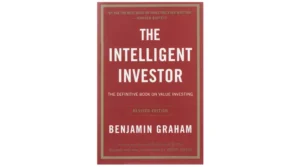
The core takeaway from Benjamin Graham’s highly praised book is simple: “Don’t lose.” While that’s easier said than done, the book provides valuable guidance. Originally published in 1949 and updated in 2006, it remains a timeless resource for investors at all levels, offering a solid foundation in value investing—purchasing stocks of high-quality companies that are undervalued, much like buying a well-crafted piece of furniture at a bargain.
Instead of focusing on detailed security analysis, Graham emphasizes investment principles and investor mindset. He highlights that an investor’s intelligence isn’t measured by IQ or test scores but by qualities like patience, discipline, a willingness to learn, emotional control, and independent thinking.
The book covers topics like the difference between investment and speculation, the effects of inflation, portfolio strategies, stock selection for various types of investors, and company comparisons. To keep it relevant, Wall Street Journal columnist Jason Zweig provides modern examples after each chapter. Warren Buffett, in the preface to the fourth edition, called it the best book on investing, a view he’s held since first reading it in 1950.
Best Book on Investments Helping Society: "Patient Capital"
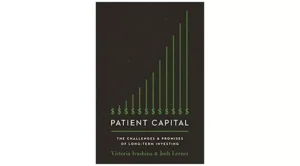 “Many of society’s toughest problems—such as environmental issues, decaying infrastructure, national security, and the drive for innovation to spur economic growth—require more than quick fixes. Instead, they demand a thoughtful investment of time and capital,” write Harvard Business School professors Victoria Ivashina and Josh Lerner.
“Many of society’s toughest problems—such as environmental issues, decaying infrastructure, national security, and the drive for innovation to spur economic growth—require more than quick fixes. Instead, they demand a thoughtful investment of time and capital,” write Harvard Business School professors Victoria Ivashina and Josh Lerner.
They highlight the Rockefeller family’s wealth as an example of “patient capital.” John D. Rockefeller’s $4,000 investment in Standard Oil laid the foundation for his family’s fortune. Generations later, his grandchildren, particularly Laurance, used this long-term capital to drive projects like Eastern Air Lines, McDonnell Aircraft Corp. (which later became part of Boeing), and tourism development in the U.S. Virgin Islands, including the Caneel Bay resort. They also played a critical role in expanding U.S. national parks.
The Rockefeller Brothers, Inc. (RBI), which included Laurance and his siblings, was structured as an evergreen fund. Rather than returning profits to investors, successful ventures were reinvested, creating a sustainable pool for future projects.
Ivashina and Lerner argue that patient capital allows investors to wait decades for returns, something governments often can’t support due to political constraints. But pension funds, insurers, sovereign wealth funds, and family fortunes can play this long-term role, benefiting investors, fund managers, and society as a whole.
Best Book About Investing Gone Awry: "The Billionaire’s Apprentice"
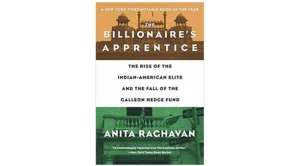 This book, which reads like a thriller, explores the downfall of two prominent South Asian figures in the U.S., Rajat Gupta and Raj Rajaratnam, and touches on several key themes:
This book, which reads like a thriller, explores the downfall of two prominent South Asian figures in the U.S., Rajat Gupta and Raj Rajaratnam, and touches on several key themes:
•The rapid rise of the South Asian diaspora in influential sectors of American business and professions.
•The post-1965 immigration wave of South Asians to the U.S. after changes to U.S. immigration laws.
•A real-life “Othello-Iago” dynamic between Indian immigrant Rajat Gupta (Othello), a former head of McKinsey & Co., and Sri Lankan-born Raj Rajaratnam (Iago), a billionaire hedge fund manager at Galleon Group.
•The eventual insider trading scandal that led to their arrests and prison sentences, prosecuted by Indian-born Preet Bharara, U.S. Attorney for the Southern District of New York.
Author Anita Raghavan, herself of South Asian descent and a journalist with contributions to The New York Times, The Wall Street Journal, and Forbes, portrays Rajaratnam as the “king of wealth” and Gupta as the “king of thought.” Gupta, enticed by the allure of billionaire status after years of earning millions at McKinsey, ultimately got entangled with Rajaratnam in criminal activity.
Despite their downfall casting a shadow over the South Asian community’s success, Raghavan emphasizes that this scandal is just one part of their broader story. She concludes The Billionaire’s Apprentice with a shocking family secret from Gupta’s past that hints at his later crimes.
Best Book on Day Trading: "The Ultimate Day Trader"
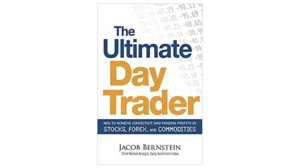
“Definitions and Directions—What It Means to Day Trade Today.” He defines a day trader as someone who enters and exits positions within a single trading day, noting that the concept of a “trading day” has evolved into a 24-hour cycle due to round-the-clock trading in various markets.
Bernstein outlines 11 compelling reasons to consider day trading, such as reduced headline risk, the ability to know your results by the end of the day, reliable forecasting, instant execution, and the excitement it can bring. However, he also addresses the challenges: day trading requires significant effort, is influenced by unpredictable events, is time-consuming, competitive, and can be stressful.
As the founder of Bernstein Investments Inc. and author of 35 books on trading and investor psychology, Bernstein employs a clear writing style complemented by charts and graphs. He covers essential topics such as day trading strategies, gap trading, volume spikes, structural importance, exit strategies, and outlines the “10 Cardinal Rules of Day Trading.”
Among these rules are doing thorough research, maintaining consistency, steering clear of stocks or futures that intimidate you, and being ready to make bold moves to achieve profits. Ultimately, Bernstein challenges readers to assess whether they have the resilience to acknowledge their losses and move forward. If you feel prepared, it’s time to dive into day trading.
Best on the Thinking Behind Money and Investing: "The Psychology of Money"
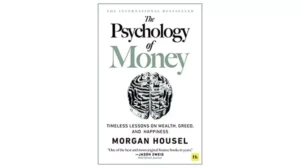 This engaging book takes readers through 19 concise chapters that explore the unconventional ways people think about money and the behavioral psychology behind financial decisions, while offering strategies for achieving greater financial security. One key takeaway from author Morgan Housel is the importance of staying wealthy rather than simply focusing on how to get wealthy. He uses Warren Buffett, the Chairman and CEO of Berkshire Hathaway, as an example; Buffett started investing as a child and genuinely enjoys making money, yet he notably avoids the excesses associated with wealth.
This engaging book takes readers through 19 concise chapters that explore the unconventional ways people think about money and the behavioral psychology behind financial decisions, while offering strategies for achieving greater financial security. One key takeaway from author Morgan Housel is the importance of staying wealthy rather than simply focusing on how to get wealthy. He uses Warren Buffett, the Chairman and CEO of Berkshire Hathaway, as an example; Buffett started investing as a child and genuinely enjoys making money, yet he notably avoids the excesses associated with wealth.
Housel argues that the true purpose of money is the freedom it provides to make choices that lead to happiness. “It is the highest dividend money pays,” he asserts. A former Wall Street Journal columnist with numerous journalism accolades, Housel’s insights are mostly on point, although he controversially views Benjamin Graham’s The Intelligent Investor as outdated and less relevant for contemporary investors.
Certified Financial Planner Justin Pritchard commends Housel’s book for covering crucial finance topics that are both unexpected and enjoyable to ponder. He points out that while Warren Buffett and Bill Gates are undoubtedly intelligent, their success also stemmed from unique circumstances—Buffett leveraged time effectively, and Gates had the fortune of attending a school that provided early access to computers, which was rare at the time.
Best Investing How-To Book: "The Only Investment Guide You’ll Ever Need"
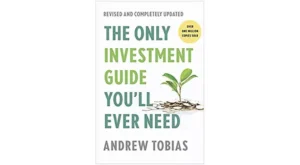 Lives up to its brash title,” said the Los Angeles Times about Andrew Tobias’s investment book, which first hit shelves in 1978 and has undergone several revisions, the latest in 2022.
Lives up to its brash title,” said the Los Angeles Times about Andrew Tobias’s investment book, which first hit shelves in 1978 and has undergone several revisions, the latest in 2022.
In this updated edition, Tobias addresses the economic impact of the COVID-19 pandemic and examines how investors and taxpayers navigated the Trump administration and previous administrations. With a blend of knowledge and humor, he guides readers through various investment vehicles, including stocks, bonds (such as savings, municipal, corporate, convertible, and zero-coupon bonds), mutual funds, U.S. Treasury bills, exchange-traded funds (ETFs), and different types of retirement accounts. He also explores tax strategies and offers advice on working with brokers. Tobias advocates for a stock market strategy that emphasizes investing most of your savings in mutual funds and ETFs while limiting direct investments to no more than 20%.
Throughout the book, he adopts the persona of a wise, affluent uncle, particularly in the chapter titled “A Penny Saved is Two Pennies Earned.” Here, he shares practical money-saving tips covering topics like credit cards, vacation budgeting, monitoring bank accounts, and opting for cubic zirconium jewelry instead of diamonds, which he calls “ridiculous.”
In the appendices, Tobias discusses topics like Social Security, life insurance, saving money by purchasing wine by the case, the national debt, and a selection of discount brokers. Mark Cuban, the billionaire entrepreneur and owner of the Dallas Mavericks, praised the book, stating, “This is the only investment book I’ve read that truly made sense.”
